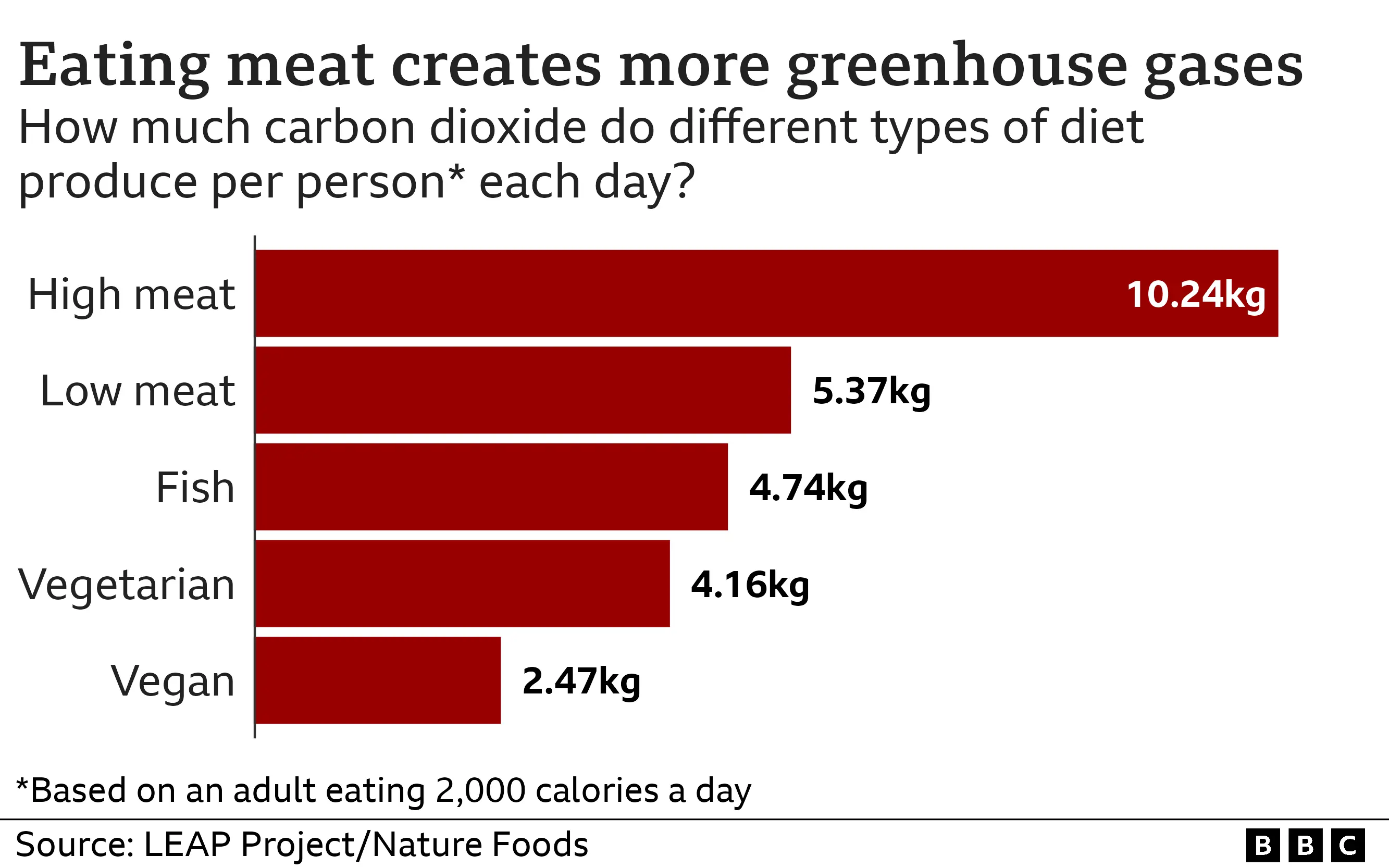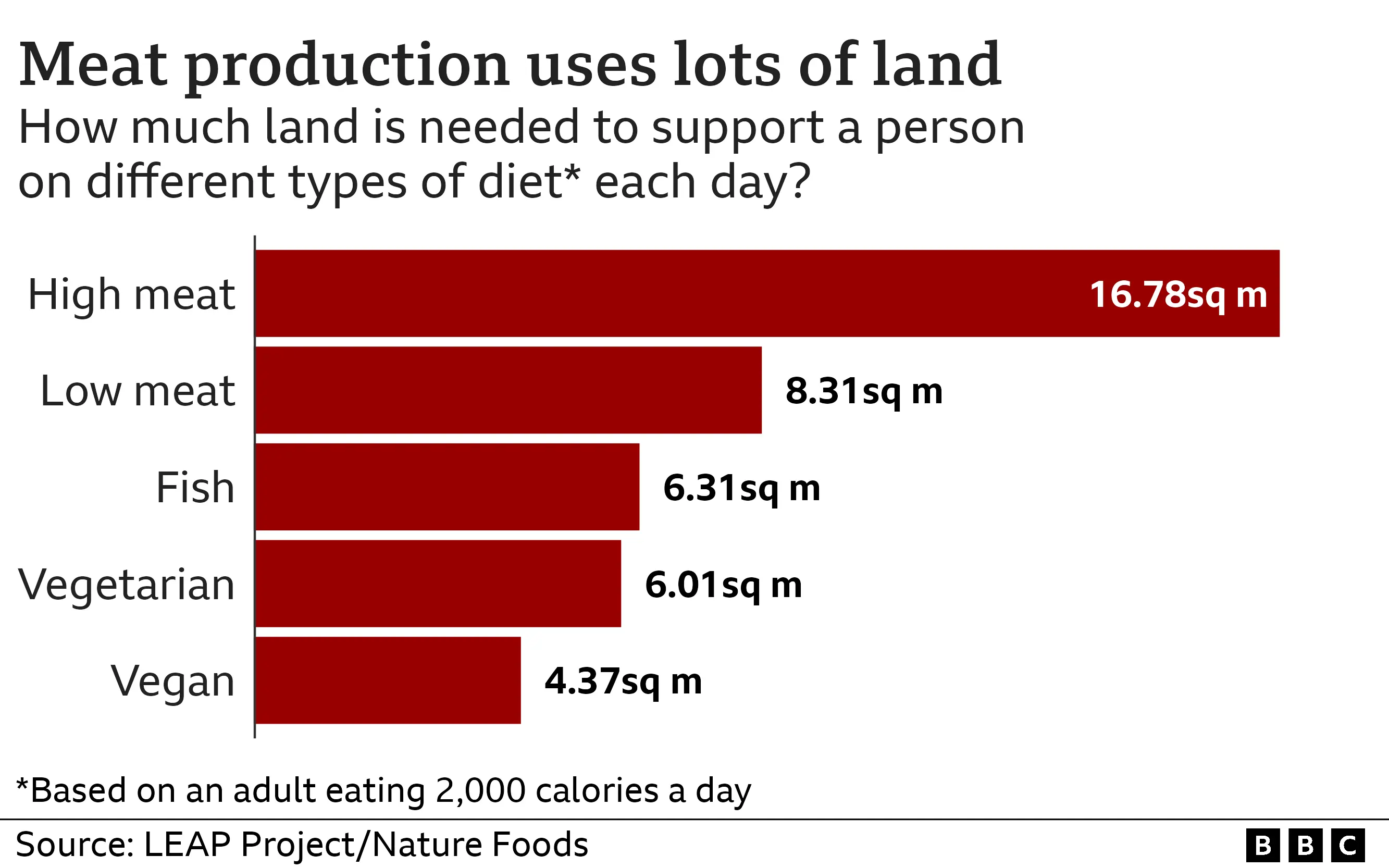The BBC has a striking report on a new research paper from Nature Food:

High meat is more than 100g/3.5oz per day, i.e. about 4 sausages or a small chicken breast. That's only a starter size for a lot of Irish people!
The gist of the story is that we don't need to give up meat but we can make huge improvements by just reducing our intake.
I have several economic concerns about the amount of meat we consume.
On the environmental level, meat production produces huge amounts of greenhouse gases and uses vast quantities of water. This will cost taxpayers in the long run when we inevitably pay the price of an overheating planet, ecological wastelands, droughts, etc.
There are also serious human health effects from high meat diets, including: heart disease, stroke, cancer, obesity. These chronic conditions cost economies directly, in providing medical care, and indirectly, in lost productivity (e.g. early retirement, disability benefit, sick days).
Finally, there is the hugely inefficient use of land:

We should be minimising the use of land for agriculture so that we have more space for woodlands, recreation, public spaces, housing, etc.
I grew up on a farm and we reared animals for meat, so I have an appreciation for the hard work and dedication of farmers, but I cannot see how we can justify our economic support of beef and dairy long term.
Before the inevitable rants about "the nanny state", I don't hear anyone saying we should ban meat or get rid of all beef farming, but surely it's reasonable for the government to use its powers to defend the public purse by encouraging lower meat consumption?
Eating less meat 'like taking 8m cars off road'

High meat is more than 100g/3.5oz per day, i.e. about 4 sausages or a small chicken breast. That's only a starter size for a lot of Irish people!
The gist of the story is that we don't need to give up meat but we can make huge improvements by just reducing our intake.
I have several economic concerns about the amount of meat we consume.
On the environmental level, meat production produces huge amounts of greenhouse gases and uses vast quantities of water. This will cost taxpayers in the long run when we inevitably pay the price of an overheating planet, ecological wastelands, droughts, etc.
There are also serious human health effects from high meat diets, including: heart disease, stroke, cancer, obesity. These chronic conditions cost economies directly, in providing medical care, and indirectly, in lost productivity (e.g. early retirement, disability benefit, sick days).
Finally, there is the hugely inefficient use of land:

We should be minimising the use of land for agriculture so that we have more space for woodlands, recreation, public spaces, housing, etc.
I grew up on a farm and we reared animals for meat, so I have an appreciation for the hard work and dedication of farmers, but I cannot see how we can justify our economic support of beef and dairy long term.
Before the inevitable rants about "the nanny state", I don't hear anyone saying we should ban meat or get rid of all beef farming, but surely it's reasonable for the government to use its powers to defend the public purse by encouraging lower meat consumption?

